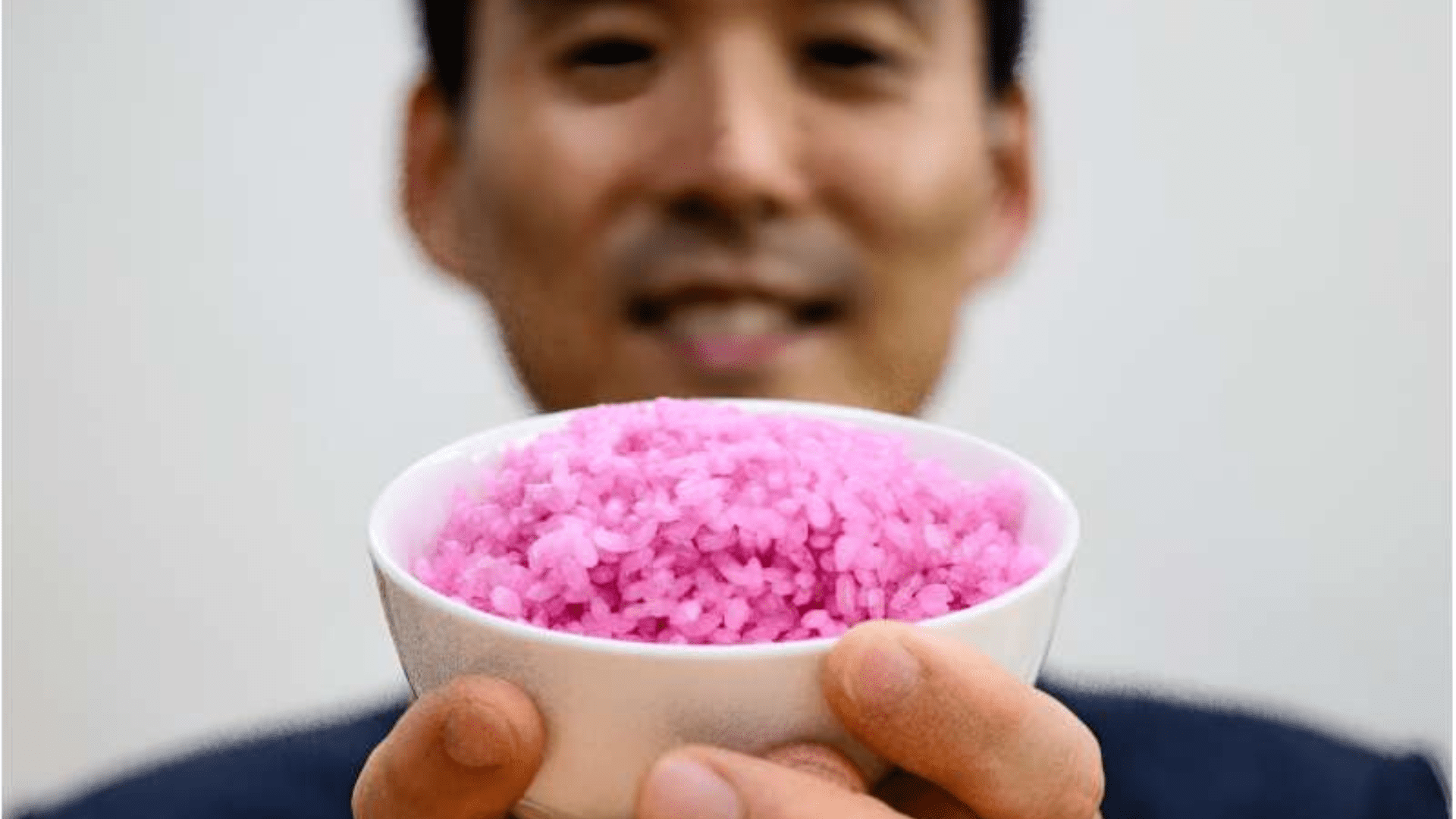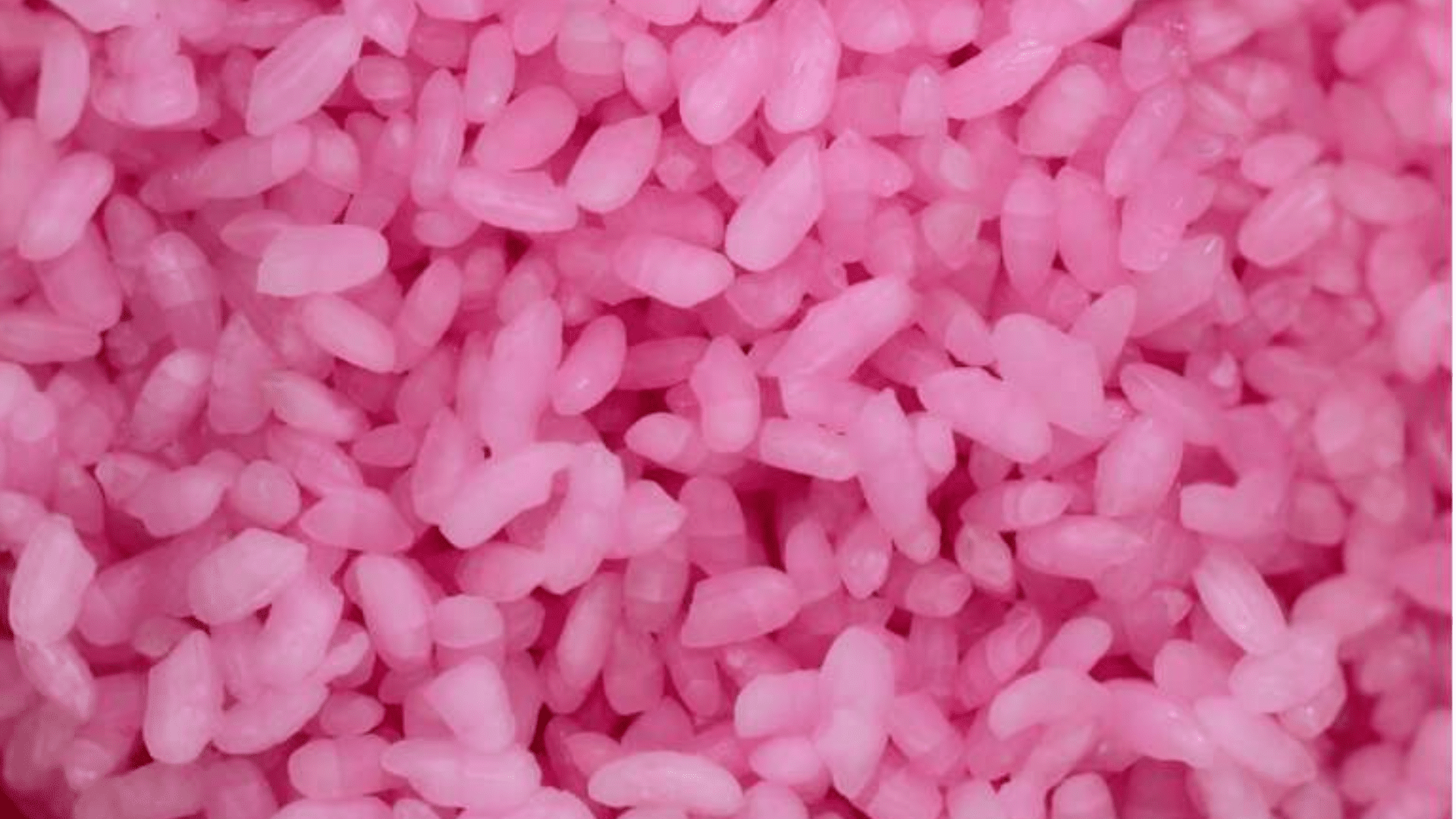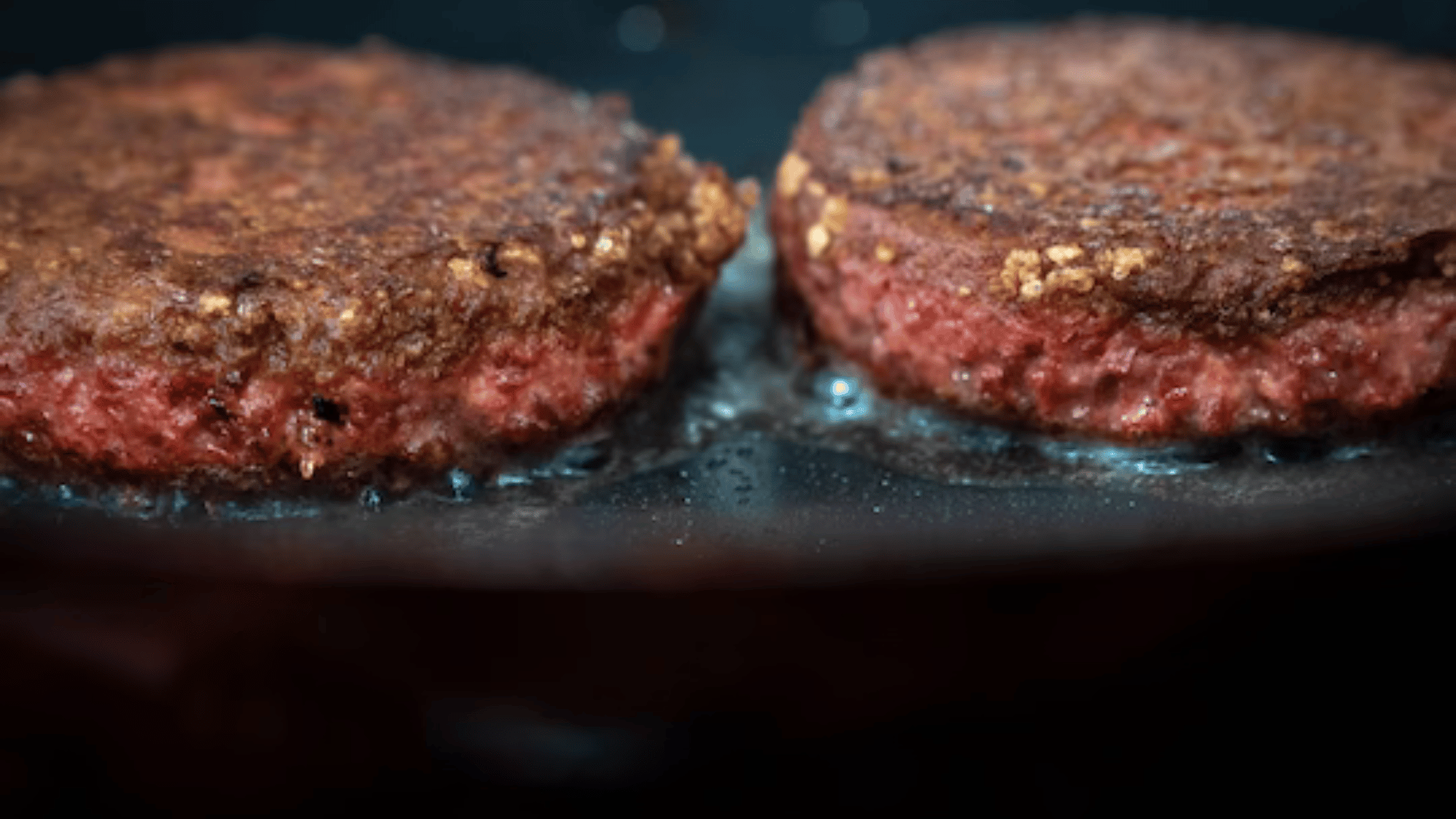A group of South Korean scientists is trying to revolutionize protein consumption. Their method involves injecting cultured beef cells into individual rice grains, producing “meaty rice.” The team leader believes this is an ethical and sustainable protein source.
Protein Packed Rice

The team of scientists’ new take on rice involves packing the food with protein without harming any livestock. Instead, they pump the individual pieces of rice with cultured beef cells. The team leader and professor, Hong Jin-kee, believes the so-called “meaty rice” could prevent famine, help feed astronauts in space, and everything in between. There is a pink hue to the rice, but otherwise, it looks like an ordinary bowl of rice. However, it has a buttery aroma because it is packed with beef muscle and fat cell culture.
Because they use cultured meat, Hong tells AFP, “We can obtain animal protein without the slaughter of livestock.”
Companies worldwide want to find a way to commercialize meat alternatives because of the ethical issues surrounding livestock rearing. Additionally, companies want to look for alternatives because of the amount of greenhouse gas emissions from animal farming. Alternatives include plant-based meat or cultured meat. Because it is already the top source of protein in Asia, Hong chose rice for his research. However, his process is currently too time-consuming. Hong coats the rice in fish gelatin for adherence; then, each individual grain is injected with beef cells before being cultured for up to 11 days.
According to Hong, rice has a “slightly porous structure,” and once beef cells are injected, the grain offers “an ideal structure for cells to grow uniformly from the inside out.”
Reducing Carbon Footprint

Explore Tomorrow's World from your inbox
Get the latest science, technology, and sustainability content delivered to your inbox.
I understand that by providing my email address, I agree to receive emails from Tomorrow's World Today. I understand that I may opt out of receiving such communications at any time.
Neil Stephens is a lecturer on technology and society at the University of Birmingham. He says cultured meat has long “presented as a climate solution compared to traditional livestock.” According to Hong’s team, their hybrid rice method significantly reduces carbon emissions by eliminating the need to raise and farm animals.
Additionally, the team believes the “meaty rice” presents many benefits for critical situations. Hong’s beef cell rice has eight percent more protein and seven percent more fat than regular rice. The team is still working on scaling the process. In addition, they hope the rice gets approved as a relief food for two African countries.
Hong said, “For those who are limited to… just one meal a day, a slight increase in (protein content), even by just a few percent, becomes incredibly important.”
Cultivated meat is not approved in South Korea, but in 2022 the country announced plans to put millions of dollars towards a “foodtech” fund. However, they will separately identify cell-cultured meat as a priority research area. Countries like Singapore and the United States sell cultivated meats, but it is banned in Italy. When the country banned it, they cited a need to safeguard the livestock industry.
Like livestock rearing, some scholars believe the cultivated meat industry is also unethical. One concern is the sourcing of the initial animal cell. Choi Yoon-jae is a former emeritus professor at Seoul National University. He wrote a column on the website Chuksan News. In that article, he said it’s difficult to be “certain about the safety of the serum used in culture media and the antibiotics and hormones added during the culturing process.”







